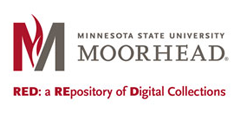Location
Comstock Memorial Union, MSUM
Document Type
Poster
Event Website
https://www.mnstate.edu/sac/
Start Date
23-4-2024 12:00 AM
Publication Date
April 2024
Description
Early observations (1600s-1800s) concerning the Meshkwaki, a Central Algonquian Indigenous group of the Western Great Lakes and eastern Prairies of the United States, emphasized the perceived primary role of patri-based institutions. This attention was echoed by the anthropologists of the late 1800s and early 1900s, who prioritized and described the role and purpose of patrilineal descent. In 1937 the US Government and its supporters forced the Meshkwaki to adopt a tribal constitution which included the abandonment of their traditional leadership structure and the introduction of patrilineal descent for tribal membership. This poster will begin by contextualizing patri-based institutions within pre-1937 Meshkwaki culture and will discuss pre-1937 internal conceptions of tribal membership. It will then re-examine the circumstances of the 1937 tribal constitution, followed by presenting the subsequent accommodations made in regard to the patrilineal membership rule by the tribal government from inception to the present-day, as well as discuss post-1937 internal conceptions of tribal membership. From this contextualization, the poster will shift towards a stance of decolonizing the post-1937 Meshkwaki tribal membership mandate, discussing the 1937 coercion and post-1937 conflicts concerning that decision, and the adjustments made since 1937 to accommodate matrilineal-only Meshkwaki descendants. Historical data will be integrated with contemporary fieldwork details to explicate our treatment of the problematic Meshkwaki tribal membership requirement.
Included in
Politics and Gender in Meskwaki Tribal Membership
Comstock Memorial Union, MSUM
Early observations (1600s-1800s) concerning the Meshkwaki, a Central Algonquian Indigenous group of the Western Great Lakes and eastern Prairies of the United States, emphasized the perceived primary role of patri-based institutions. This attention was echoed by the anthropologists of the late 1800s and early 1900s, who prioritized and described the role and purpose of patrilineal descent. In 1937 the US Government and its supporters forced the Meshkwaki to adopt a tribal constitution which included the abandonment of their traditional leadership structure and the introduction of patrilineal descent for tribal membership. This poster will begin by contextualizing patri-based institutions within pre-1937 Meshkwaki culture and will discuss pre-1937 internal conceptions of tribal membership. It will then re-examine the circumstances of the 1937 tribal constitution, followed by presenting the subsequent accommodations made in regard to the patrilineal membership rule by the tribal government from inception to the present-day, as well as discuss post-1937 internal conceptions of tribal membership. From this contextualization, the poster will shift towards a stance of decolonizing the post-1937 Meshkwaki tribal membership mandate, discussing the 1937 coercion and post-1937 conflicts concerning that decision, and the adjustments made since 1937 to accommodate matrilineal-only Meshkwaki descendants. Historical data will be integrated with contemporary fieldwork details to explicate our treatment of the problematic Meshkwaki tribal membership requirement.
https://red.mnstate.edu/sac/2024/cshe/3

